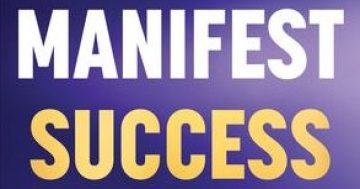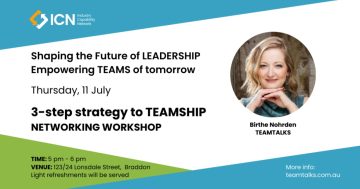Martin Lanik* says despite the amount of money and effort put into leadership development, the traditional methods are not working.
 Most of us seem to intuitively understand the connection between leadership and success, because we invest a lot of time and money in self-help classes and books intended to improve our leadership skills.
Most of us seem to intuitively understand the connection between leadership and success, because we invest a lot of time and money in self-help classes and books intended to improve our leadership skills.
Likewise, employers also invest heavily in leadership development.
Spending more gets less
In fact, annual spending on leadership development has been steadily increasing since 1996.
But there’s a problem: all this investment isn’t making us better leaders.
On the contrary, there is a negative correlation between the macroeconomic amount spent on leadership development and our collective confidence in leadership.
In 2015, Brandon Hall Group surveyed more than 500 organisations across 34 countries and 31 industries, and what they found was alarming: half of the respondents reported that their current leaders didn’t have the requisite skills to effectively lead their organisations.
Moreover, 71 per cent of the organisations said their leaders were not prepared to lead the organisation in the future.
Clearly there is a global leadership problem, despite people’s desire to be better leaders, and despite the ever-increasing amount of money being spent on leadership development.
Where are we going wrong?
As we’ve already seen, the problem isn’t a lack of knowledge about the nature of leadership; conceptually, the skills and behaviours of great leaders are well understood.
The problem is with the way most people approach leadership development.
Books and classrooms
If you want to learn a new skill or get better at something, the advice you’re most likely to get is “read a book or take a class”.
In fact, training is the go-to solution for most personnel development in the business world.
A 2017 LinkedIn survey found that 78 per cent of employers use mainly instructor-led classes to teach what they consider the most important professional skills — leadership and people management.
We regard books and classes as the ultimate way to learn because they often seem to be the easiest solutions, and because they’re the most familiar.
But it turns out that these aren’t the best way to learn new skills.
In fact, research in business settings shows that classroom-based training is usually ineffective; people end up using only 10 per cent of what they learn on the job.
There are a number of reasons why traditional classroom and book-learning approaches to leadership development aren’t effective.
One is simply that we forget most of what we read about or are taught in the classroom.
Knowledge is not skills
The second reason is that, during training, people acquire mainly knowledge, not skills.
Knowledge can be useful, if you can retain it and recall it at the right moments, but skills are what make us better at actually doing things, and skills are only developed through a systematic exercise regime known as deliberate practice, which is very different from acquiring conceptual knowledge.
Like learning to play the piano, leadership is more about skills than knowledge.
The only way to become a better leader is to improve your leadership skills through deliberate, sustained practise — something traditional leadership training rarely provides.
The last and perhaps most important reason why traditional leadership training doesn’t work is that it fails to take into account the overwhelming influence that habits have on human behaviour.
Most leadership training rests on the assumption that our daily behaviour is rational, deliberate, and consciously controlled — but this assumption couldn’t be further from the truth.
We are creatures of habit, personally and professionally, and no amount of classroom instruction or book learning alone can build the habits that will make us better leaders.
The leader habit formula
So, what is the alternative?
The answer lies in developing better habits.
When leaders act badly, it’s usually out of habit — something about the situation makes them unconsciously slip into a bad behaviour without realising it.
The good news is, by turning leadership skills into habits, we can train ourselves to automatically respond to situations with effective behaviours, thus becoming more effective leaders.
The method is simple: you identify a leadership skill you want to master, such as active listening, then you practise that skill through a short, focused exercise every day until it becomes a habit.
I call this the Leader Habit Formula.
The Formula is different from other leadership development programs.
Instead of relying on theoretical knowledge and classroom-based learning, the Formula is a continuous process that helps you develop leadership skills through deliberate practise.
This approach is based on scientific observations about how people most effectively learn new skills, and how powerfully habits affect our behaviour.
The better your leadership habits, the better you will perform as a leader — and the more successful you will be.
Every aspect of your personal and professional life has the potential to be influenced by automatic, habitual patterns of behaviour.
Every skill starts as weakness
Any leadership skill starts as a weakness; you haven’t practised the skill and so you have to pay very close attention to it, because you don’t yet know how to do it well.
This stage takes a lot of effort and concentration, and you will make many mistakes along the way.
As you continue to practise the skill, your brain will start to automate some of the basic processes, like remembering the sequence of tasks and perhaps becoming better at a particular portion of the sequence.
As your brain internalises the processes that make up the different parts of the skill, the skill will begin to seem easier.
You are now becoming proficient.
The more you continue to practise, especially the things you find more challenging, the closer you are getting to mastery.
When you achieve mastery, you are now good at the skill, you can do it confidently, and others recognise your mastery.
But even though you have mastered the skill, performing it still requires concentration and effort, because automaticity has not fully formed — the skill is not yet a habit.
It takes practise beyond mastery, what psychologists refer to as over-learning, to fully form a habit.
If you persist to the point of habit with the skill, you will find that what once felt difficult and unnatural and required a lot of effort and concentration now happens effortlessly.
* Martin Lanik is the CEO of global leadership development firm Pinsight.
This article first appeared at www.tlnt.com.











